Celebrating 25 Years of Uninterrupted Democracy in Nigeria: A Journey of Progress and Challenges.
As Nigeria marks a significant milestone of 25 years of uninterrupted democracy, the nation reflects on a journey replete with both progress and challenges. Since the return to civilian rule in 1999, Nigeria has navigated through various political landscapes, witnessing moments of triumph and tribulation, yet steadfastly holding onto the democratic ideals envisioned by its founding fathers.
From the ashes of military dictatorship emerged a fledgling democracy, brimming with hope and aspirations for a better future. The transition marked a pivotal moment in Nigeria’s history, signaling a commitment to governance by the people, for the people. The years that followed saw remarkable strides in democratic consolidation, with successive elections serving as a testament to the resilience of Nigeria’s democratic institutions.
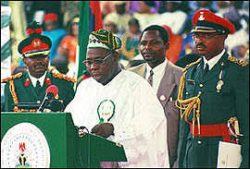
Former Nigeria president Obasanjo
One of the notable achievements of Nigeria’s democratic journey has been the expansion of political participation and civic engagement. The electorate has grown increasingly empowered, exercising their right to choose their leaders through free and fair elections. The emergence of vibrant civil society organizations and a robust media landscape has further bolstered transparency and accountability in governance.
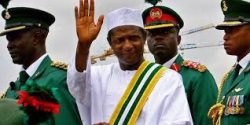
Former Nigeria president Yar’adua
Moreover, Nigeria’s democratic experience has witnessed significant socio-economic advancements. Despite facing myriad challenges, including corruption, insecurity, and economic instability, the country has made notable progress in areas such as infrastructure development, healthcare, and education. Initiatives aimed at promoting inclusive growth and alleviating poverty have begun to yield tangible results, albeit with room for improvement.
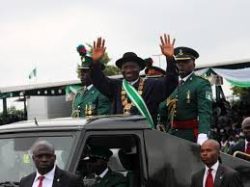
Former Nigeria president Jonathan
However, the journey of Nigerian democracy has not been without its share of hurdles. Persistent issues such as political instability, ethnic and religious tensions, and institutional weaknesses continue to pose formidable challenges to the nation’s democratic aspirations. The specter of corruption looms large, undermining public trust in government institutions and hindering socio-economic development.
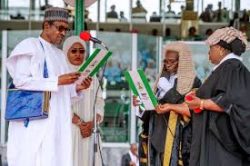
Former Nigeria president
READ ALSO:FG launches reopening of Lagos-Kano rail services
Furthermore, Nigeria grapples with the menace of insecurity, ranging from Boko Haram insurgency in the northeast to farmer-herder conflicts in the middle belt. These security challenges not only threaten the lives and livelihoods of citizens but also test the resilience of Nigeria’s democratic institutions.
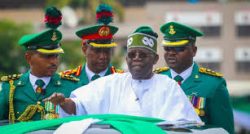
President Bola Tinubu
As Nigeria commemorates 25 years of uninterrupted democracy, it stands at a crossroads, poised between the promise of a brighter future and the perils of stagnation. The journey thus far has been marked by progress tempered by challenges, underscoring the need for continued commitment to democratic principles, good governance, and inclusive development. As the nation looks ahead, it must draw inspiration from its past achievements while remaining steadfast in its resolve to surmount the obstacles that lie ahead, ensuring that the promise of democracy is fulfilled for all Nigerians.
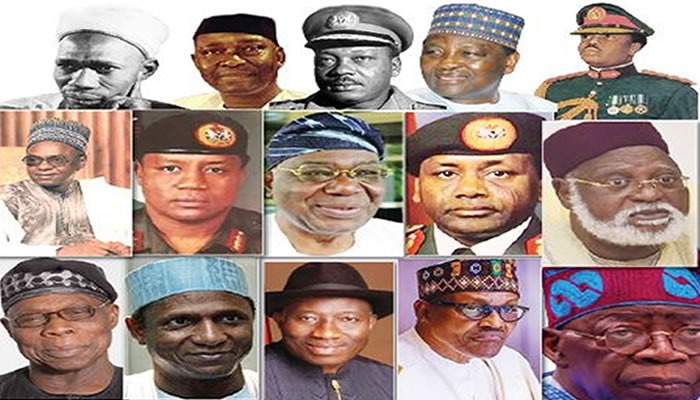

 Health1 week ago
Health1 week ago
 Business1 week ago
Business1 week ago
 Health7 days ago
Health7 days ago
 Latest1 week ago
Latest1 week ago
 Latest1 week ago
Latest1 week ago
 Football7 days ago
Football7 days ago
 Education5 days ago
Education5 days ago
 Crime7 days ago
Crime7 days ago









